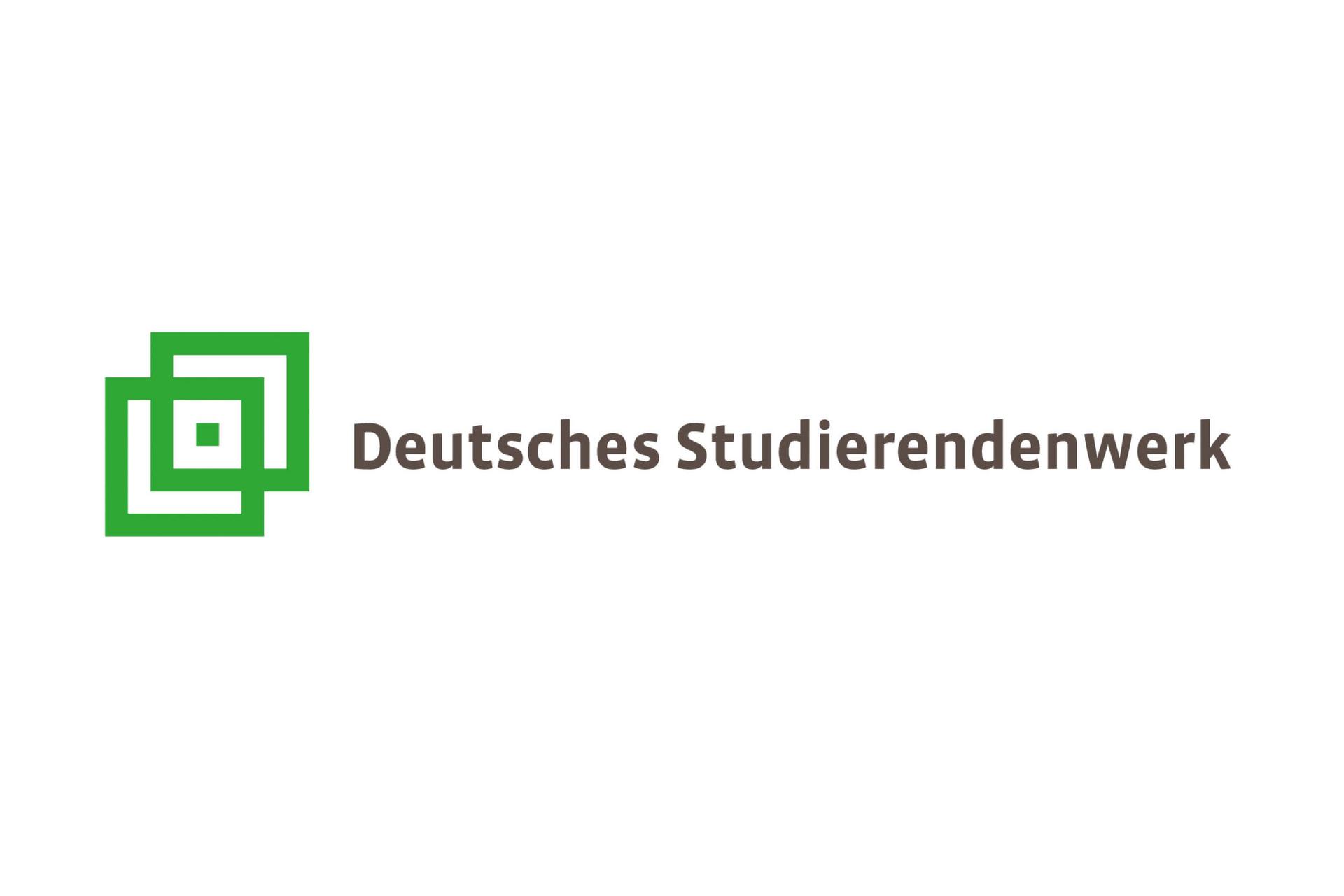Aufgrund von § 1 Abs. 2 i.V. mit § 8 Abs. 1 des Studierendenwerksgesetzes Baden- Württemberg (StWG) in der Fassung vom 15.09.2005 (Gesetzblatt S. 621), zuletzt geändert durch das Gesetz vom 17.12.2020 (GBl. S. 1204, 1226), hat die Vertretungsversammlung des Studierendenwerks Stuttgart mit Beschluss vom 27.07.2021- und mit Genehmigung des Wissenschaftsministeriums (Erlass vom 07.09.2021 AZ:24-7650.10/13/1) –die Satzung geändert und ergänzt:
§ 1 – Name, Sitz und Zuständigkeit
1. Das Studierendenwerk Stuttgart ist eine rechtsfähige Anstalt des öffentlichen Rechts. Es führt den Namen:
Studierendenwerk Stuttgart
Anstalt des öffentlichen Rechts
2. Das Studierendenwerk Stuttgart führt ein Dienstsiegel.
3. Es hat seinen Sitz in Stuttgart.
4. Das Studierendenwerk Stuttgart nimmt im Zusammenwirken mit folgenden Hochschulen und Akademien die Aufgaben sozialer Betreuung und Förderungen der Studierenden wahr:
- Universität Stuttgart
- Hochschule für Technik Stuttgart
- Staatliche Hochschule für Musik und Darstellende Kunst Stuttgart
- Staatliche Akademie der Bildenden Künste Stuttgart
- Hochschule der Medien Stuttgart
- Pädagogische Hochschule Ludwigsburg
- Hochschule für öffentliche Verwaltung und Finanzen Ludwigsburg
- Duale Hochschule Baden-Württemberg Stuttgart
- Hochschule Esslingen
- Filmakademie Baden-Württemberg – Ludwigsburg
- Akademie für Darstellende Kunst Baden-Württemberg
5. Weitere Einrichtungen können dem Studierendenwerk Stuttgart zum Zweck der sozialen Betreuung und Förderung ihrer Studierenden beitreten.
6. Für die Aufgaben der sozialen Betreuung und der Förderung der Studierenden werden Beiträge erhoben. Näheres regelt die jeweils gültige Beitragsordnung.
§ 2 – Gemeinnützigkeit
1. Das Studierendenwerk Stuttgart verfolgt ausschließlich und unmittelbar gemeinnützige Zwecke im Sinne des Abschnitts „steuerbegünstigte Zwecke" der Abgabenordnung. Zweck des Studierendenwerks Stuttgart ist die Förderung der Erziehung, Volks- und Berufsbildung einschließlich der Studierendenenhilfe und des Wohlfahrtswesens.
2. Der gemeinnützige Zweck wird insbesondere erreicht durch Wahrnehmung sozialer, wirtschaftlicher und kultureller Betreuung und Förderung von Studierenden (Studierendenenhilfe) u.a. durch folgende Einrichtungen, Tätigkeiten und Leistungen:
a) Errichtung und Betrieb von Verpflegungsbetrieben (Mensen und Cafeterien)
Der gemeinnützige Zweck wird durch die Versorgung von Studierenden sowie im Rahmen von Hochschulveranstaltungen auch für Schülerinnen und Schüler als zukünftige Studierende mit Speisen und Getränken zu besonders günstigen Bedingungen verfolgt.
b) Errichtung und Vermietung von studentischem Wohnraum
Der gemeinnützige Zweck wird durch die kostengünstige Überlassung von Wohnraum an Studierende und das Angebot von Betreuungsmaßnahmen (Tutorenprogramm, Gemeinschaftseinrichtungen) verfolgt. Aus Gründen der Kapazitätsauslastung können Schüler*innen als Personen nach § 2 Abs. 5 StWG nachrangig berücksichtigt werden.
c) Förderung kultureller, sozialer und sportlicher Interessen der Studierenden sowie Betreuung und Förderung spezieller Gruppen – wie Behinderte, Alleinerziehende, Studierende aus dem Ausland
Der gemeinnützige Zweck kann durch die Bereitstellung von Räumen und Flächen sowie durch das Angebot entsprechender Dienstleistungen und Veranstaltungen verfolgt werden.
d) Errichtung und Betrieb von Kindertagesstätten
Durch den Betrieb dieser Einrichtungen erfolgt unmittelbar eine Förderung der Studierenden
e) Maßnahmen zur Beratung und Vermittlung sowie zur Gesundheitsförderung
Der gemeinnützige Zweck kann durch Errichtung und Betrieb von Beratungs- und Vermittlungseinrichtungen und das Angebot entsprechender Dienstleistungen verfolgt werden.
3. Das Studierendenwerk Stuttgart ist selbstlos tätig; es verfolgt nicht in erster Linie eigenwirtschaftliche Zwecke. Mittel des Studierendenwerks Stuttgart dürfen nur für satzungsgemäße Zwecke verwendet werden.
4. Es darf keine Person durch Ausgaben, die dem Zweck der Anstalt fremd sind, oder durch unverhältnismäßig hohe Vergütungen begünstigt werden.
§ 3 – Organe
Organe des Studierendenwerks Stuttgart sind gemäß § 4 des StWG:
- der*die Geschäftsführer*in
- der Verwaltungsrat
- die Vertretungsversammlung
§ 4 – Vertretungsversammlung
1. Zusammensetzung, Bildung und Verfahren der Vertretungsversammlung richten sich nach §§ 8, 9 und 10 des StWG.
2. Neben den kraft Amtes entsandten Vertreter*innen entsenden Hochschulen und Studienakademien mindestens eine Lehrkraft und eine*n Studierende*n in die Vertretungsversammlung. Die Entsendung weiterer Vertreter*innen in die Vertretungsversammlung gem. § 8 Abs. 3 StWG richtet sich nach der Größe der Hochschulen und Studienakademien. Mit bis zu 3000 Studierenden werden keine zusätzlichen Vertreter*innen der Lehrkräfte und Studierenden entsendet, mit bis zu 7.000 Studierenden wird jeweils ein*e zusätzliche Vertreter*in der Lehrkräfte und Studierenden entsendet, mit bis zu 14.000 Studierenden werden jeweils zwei zusätzliche Vertreter*innen und mit mehr als 14.000 Studierenden werden jeweils drei zusätzliche Vertreter*innen der Lehrkräfte und Studierendenentsendet.
3. Die Vertretungsversammlung wählt eine*n Vorsitzende*n und deren*dessen Stellvertreter*in aus ihrer Mitte für die Dauer von einem Jahr. Bis zur Wahl des*der Vorsitzenden wird die Vertretungsversammlung von der bisherigen Vorsitzenden bzw. vom bisherigen Vorsitzenden geleitet. Stellt sich die*der Vorsitzende zur Wiederwahl, so wird die Vertretungsversammlung bis zur Wahl des*der Vorsitzenden von der stellvertretenden bzw. vom stellvertretenden Vorsitzenden geleitet..
4. Die Amtszeiten der gewählten Mitglieder in der Vertretungsversammlung beginnen jeweils zum 1. Oktober eines Jahres.
5. Für den Fall der Verhinderung eines gewählten Mitglieds an der Vertretungsversammlung ist je eine Stellvertreterin oder ein Stellvertreter zu wählen. Mitglieder kraft Amtes können nicht vertreten werden..
6. Scheidet ein gewähltes Mitglied vor Ablauf der Amtszeit aus, tritt ein Ersatzmitglied bis zum Ende der Amtszeit an dessen Stelle. Ersatzmitglied wird bei den gewählten Mitgliedern der*die jeweilige Stellvertreter*in nach Nr. 5. Für Mitglieder kraft Amtes tritt ein Ersatzmitglied kraft Amtes an Stelle des ursprünglichen Mitglieds.
7. Die Vertretungsversammlung wird von einem Mitglied des Verwaltungsrats über die Tätigkeit des Verwaltungsrats informiert.
8. Die Vertretungsversammlung gibt sich eine Geschäftsordnung.
9. Das Wahlverfahren zur Festlegung der Mitglieder, der Stellvertreter*innen und Ersatzmitglieder des Verwaltungsrats gem. § 6 Abs. 4 Studierendenwerksgesetz regelt die Geschäftsordnung der Vertretungsversammlung.
§ 5 – Verwaltungsrat/ Zusammensetzung/ Amtsdauer
1. Die Mitglieder des Verwaltungsrates werden von der Vertretungsversammlung nach § 8 StWG gewählt.
2. Die Amtszeit der Vertreter*innen der Studierenden und deren Stellvertretung beträgt ein Jahr, die der übrigen Wahlmitglieder und der übrigen Stellvertretung zwei Jahre. Sie beginnt jeweils am 01. Oktober des Jahres.
Ist bei Ablauf der Amtszeit noch kein neues Mitglied gewählt, so übt das bisherige Mitglied das Amt weiter aus. Die Amtszeit des verspätet gewählten Mitgliedes endet mit dem Zeitpunkt, in dem sie bei rechtzeitiger Wahl geendet hätte.
3. Die Wiederwahl von Mitgliedern des Verwaltungsrats ist zulässig.
4. Die Mitgliedschaft im Verwaltungsrat endet
- mit Ende der ausgeübten Amtszeit,
- durch Rücktritt, oder
- bei den Vertreter*innen der Hochschulleitungen mit dem Ende der Amtszeit als Mitglied der Hochschulleitung sowie
- bei den Vertreter*innen der Studierenden durch den Verlust der Mitgliedschaft an der Hochschule.
Der Rücktritt ist nur bei Vorliegen eines wichtigen Grundes zulässig. Über die Zulässigkeit des Rücktritts entscheidet der*die Vorsitzende des Verwaltungsrates.
5. Scheidet ein Mitglied des Verwaltungsrates vorzeitig aus, rückt ein Ersatzmitglied für den Rest der Amtszeit nach. Die gewählten Stellvertreter*innen der Verwaltungsratsmitglieder sind automatisch Ersatzmitglied ihres zugeordneten Verwaltungsratsmitglieds. Im Fall des Nachrückens wird das freiwerdende Amt der Stellvertretung durch ein Ersatzmitglied aus einem durch die Vertretungsversammlung gewählten Ersatzmitgliederpool besetzt.
6. Die Mitglieder des Verwaltungsrats üben ihr Amt ehrenamtlich und unentgeltlich aus.
7. Der*die Vertreter*in des Wissenschaftsministeriums wird von diesem benannt.
§ 6 – Verfahren und Aufgaben des Verwaltungsrats
1. Die Aufgaben des Verwaltungsrates richten sich nach § 6 StWG. Der Verwaltungsrat wählt den*die Geschäftsführe*in und bestellt ihn*sie.
2. Die an einer Verwaltungsratssitzung Beteiligten sind zur Verschwiegenheit über alle vertraulichen Angelegenheiten sowie über Geschäfts- und Betriebsgeheimnisse der Anstalt verpflichtet. Dies schließt die dienstliche Verwendung im Rahmen der Rechtsaufsicht nicht aus.
3. Ein Mitglied des Verwaltungsrates darf an der Behandlung einer Angelegenheit weder beratend noch entscheidend mitwirken, wenn es befangen ist, weil die Entscheidung ihm einen unmittelbaren Vor- oder Nachteil bringen kann. Ob Befangenheit vorliegt, entscheidet der Verwaltungsrat in Abwesenheit des*der Betroffenen.
4. Der*die Geschäftsführer*in kann in dringenden Fällen die kurzfristige Einberufung des Verwaltungsrates sowie die Beratung und Entscheidung bestimmter Angelegenheiten verlangen.
5. Der Verwaltungsrat kann sich eine Geschäftsordnung geben.
§ 7 – Nutzung der Einrichtungen
Über die Nutzung einzelner Einrichtungen kann der Verwaltungsrat durch den Erlass von Benutzungsordnungen entscheiden.
§ 8 – Paritätische Besetzung der Gremien
Das Studierendenwerk Stuttgart strebt in seinen Gremien eine Berücksichtigung von Frauen und Männern zu gleichen Teilen an.
§ 9 – Befreiung Geschäftsführung von § 181 BGB
Der*die Geschäftsführer*in und sein*e Verhinderungsvertreter*in gem. § 5 Abs. 4 Studierendenwerksgesetz werden für Geschäfte zwischen der SWS Hochschul-Service GmbH und dem Studierendenwerk Stuttgart von dem Verbot des Selbstkontrahierens (§ 181 BGB) befreit.
§ 10 – Bekanntmachungen
1. Die öffentlichen Bekanntmachungen des Studierendenwerks Stuttgart erfolgen in den amtlichen Bekanntmachungen der Universität Stuttgart.
2. Ergänzend werden neue Bekanntmachungen auf der Internetseite des Studierendenwerk Stuttgart unter www.studierendenwerk-stuttgart.de bereitgestellt. Über neue Bekanntmachungen werden die Leitungen der Hochschulen nach § 1 Nr. 4 der Satzung zusätzlich, ergänzend informiert, ebenso die konstituierten verfassten Studierendenschaften und der AStA der HVF Ludwigsburg.
§ 11 – Inkrafttreten
Die Satzung tritt am Tag nach ihrer Bekanntmachung in Kraft.
Marco Abe
Geschäftsführer
des Studierendenwerks Stuttgart AöR
Stand: Stuttgart, 07.09.2021
Geschäftsführer des Studierendenwerk Stuttgart



